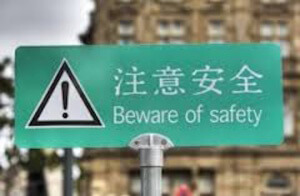
There are many types of translators. There are those who translate several languages (source languages) into their mother tongue (target language). There are others who translate multiple languages, both ways. And there are those who translate one language into their mother tongue.
When it comes to deciding which language pair – or pairs – to translate, it can be tempting to try to diversify. There’s the potential for a lot more work to come in, right?
The reality is that most translators should stick to translating into their mother tongue. Some professionals are able to translate several source languages into their native language, but very few can successfully translate into a language they did not grow up speaking. That’s because the art of translation goes beyond simply being understood. Using correct grammar and having a large vocabulary are important, but understanding cultural nuances and phraseology is what allows for a flawless translation.
The Right Word
We’ve all seen poorly translated signs, menus and websites that make us giggle or raise an eyebrow.

Many of these errors are made because a term or phrase has been directly translated from one language to another, but the meaning is “lost in translation.” Commonly used terms and phrases must be understood by the translator to make the text sound natural to native speakers.
The incorrect use of a single word can diminish the reader’s opinion of the business as a whole. After all, if a company hasn’t paid attention to the details of their document, why would the quality of their product or service be any different?
Turns of Phrase
Another reason why translating into your mother tongue is generally viewed as best practice is because of cultural differences. A non-native speaker can inadvertently confuse or even offend readers by choosing a word or phrase that is not commonly used in that language.
In English, we talk about killing “two birds with one stone.” In Chinese, the saying translates as: “one stone, two birds”. While an English speaker would get the point, they would also know the text was written by someone who is not a native English speaker.
Speaking the “Language” of Business
There’s a third language that’s crucial to this conversation. A translator must also know the vocabulary and concepts of the industry they are translating for.
For example, the term “application” in English directly translates to “une application” in French, but the proper term used in the insurance industry is “une proposition”. Another example is the term “illness” translates into “une maladie” in French, however the proper insurance terminology in French is “une condition.”
These mistakes could not only confuse a potential client, but it could change the meaning of the contract. The result could be devastating for both the insurer and the client.
At the end of the day, it comes down to the old adage, “mother (tongue) knows best.” No matter which language you speak, or how you say it, this saying is understood in just about every culture.
We’d love to hear from you (in French or English)! Contact
by Laura Regehr, Editor
Furthermore, they ought to
You want to use a diary, so which you can list all of the pieces
Because they’re utilized to write in different languages, then they will comprehend the
There are lots of writing colleges in which composition
The biggest mistake people make when writing an article www.centralfloridalifestyle.com is writing the whole thing repeatedly.
writers are in-charge of writing academic papers.
demands and expectations of their readers and give them the very best writing possible.
of your file, and also the dates when each is supposed to be composed.
search for a program that’s quite simple to use.
 English
English






